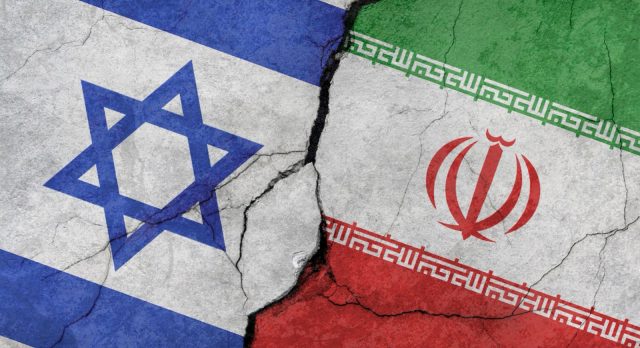
In recent days, the long-standing tension between Iran and Israel has escalated dramatically into a full-fledged remote war, marked by missiles, drones, cyberattacks, and failed diplomatic efforts to stop the cycle of violence.
The Spark: Israeli Strikes and Iran’s Response
The crisis deepened when the Israel Defense Forces (IDF) eliminated General Ali Shadmani, Iran’s wartime top military commander and a close adviser to Supreme Leader Ali Khamenei. Shadmani had been appointed only days earlier, following the death of his predecessor in another Israeli strike. The operation directly targeted the Khatam al-Anbiya emergency command center in Tehran.
Iran quickly responded. Tehran launched ballistic missiles and armed drones at strategic targets in Israel, claiming to have hit the Mossad headquarters and Israeli military intelligence in Tel Aviv. Iranian General Kioumars Heidari declared that “strategic positions in Tel Aviv and Haifa” had been destroyed, while the Revolutionary Guards celebrated the operation live on state television.
Internal Front and Digital Censorship
Iran also faced cyberattacks. The hacker group “Predatory Sparrow” claimed responsibility for an attack on Iran’s public Bank Sepah. In response, Tehran authorities imposed strict internet restrictions on government officials, aiming to prevent further leaks or sabotage.
Even reformist factions rallied around the regime. Javad Emam, spokesperson for the Reformist Front, stated: “Any damage to the system of power is damage to the entire country,” rejecting the idea of negotiations while “Israel, supported by the U.S., is bombing our territory.”
Netanyahu’s Hard Line: “Khamenei Could End Like Saddam”
Israeli Prime Minister Benjamin Netanyahu adopted a resolute tone. In an interview with ABC, he did not rule out the elimination of Iran’s Supreme Leader. When asked whether such an act could worsen the crisis, he responded: “It won’t make it worse, it will end it.”
Israeli Defense Minister Israel Katz echoed this stance, warning Khamenei that he “could meet the same fate as Saddam Hussein.” Katz declared that Israel would not allow its civilians to be harmed and rejected any talks with Iran.
Israel continued its military campaign inside Iranian territory. Major General Shlomi Binder, head of Israeli military intelligence, announced further operations in “other regions of Iran.” The IDF confirmed the neutralization of Iran’s emergency military headquarters and declared readiness to eliminate “one by one” the leaders of terrorism in Iran.
Trump Denies, Presses, and Sends Mixed Signals
At the G7 summit in Canada, U.S. President Donald Trump abruptly left the gathering to deal with the crisis. Though initially reluctant, he ultimately signed a G7 statement calling for de-escalation.
Upon returning to Washington, Trump distanced himself from rumors of direct U.S. military involvement: “I have not in any way or form contacted Iran for peace talks. Fake news!” he posted on Truth Social, his social media platform.
Nonetheless, Trump reiterated his intent to prevent Iran from acquiring nuclear weapons: “We will make sure there are no nuclear weapons in Iran,” he said during a joint appearance with UK Prime Minister Keir Starmer.
CNN reported that Trump instructed his team to attempt contact with Iranian officials through backchannels to test Tehran’s willingness for diplomacy. However, he strongly denied that his departure from the G7 was related to peace negotiations: “It’s much bigger than that,” he claimed in a jab at French President Emmanuel Macron, who had suggested otherwise.
Iran Shuts the Door on Talks, Escalates Rhetoric
Tehran, for its part, appears to have closed the door on diplomacy. Kayhan, a newspaper close to the Supreme Leader, published an editorial stating: “The destruction of Israel is the only solution.” The piece insisted: “Ending the war does not require a ceasefire, political pressure, or tactical retreat — only Israel’s complete destruction.”
At the same time, Iranian officials showcased new military capabilities. A spokesman for the Ministry of Defense claimed that a new missile was used in the latest attack on Israel, which “the Zionists were unable to intercept.”
Risk of Regional Escalation
The situation remains highly volatile. U.S. Defense Department spokesperson Sean Parnell denied American involvement in Israeli airstrikes, labeling such claims as “fake news.” Yet, U.S. Secretary of Defense Pete Hegseth stated: “We are in the region to protect our citizens and assets. We want peace, but we will defend our interests.”
Air raid sirens have continued to sound across Israel, and the Chinese embassy has urged its citizens to leave Iran immediately — a clear sign that the situation is perceived as spiraling out of control.
As bombs fall on Tehran and Tel Aviv, the international community struggles to find a way to defuse the crisis. But the rhetoric from Trump, Netanyahu, and Khamenei appears more likely to fuel the flames than extinguish them. Meanwhile, the risk that this conflict could spill beyond the borders of the two nations and engulf the region has never been more real.



 Subscribe
Subscribe